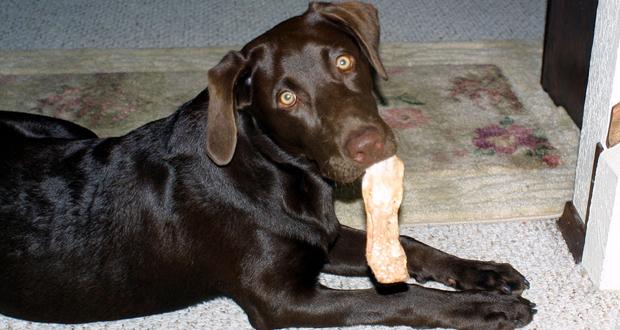By Alicia Towkaniuk
Now that we are a couple of weeks into 2017, how are you doing with your New Year’s Resolutions? Many of us find it easier to make an effort for others rather than ourselves. That’s why I’m suggesting a few resolutions that you’ll have no trouble keeping—but please note, they aren’t for you…they’re for your pets!
Diet:
Choose the very best pet food that fits your budget; look for one with lots of fresh, species-appropriate, whole food ingredients. Always start by following the package feeding guidelines for your pet’s size and activity level. These guidelines are written to provide the maximum amount of calories your pet might need, so don’t be afraid to feed a little less if you notice your pet is putting on weight. If you give a couple of treats throughout the day, or add a topper to their meals, remember to reduce the amount of their primary food to account for these extra calories.
Don’t forget to wash your pet’s food and water bowls every day with warm soapy water. If you use a water bottle or fountain, empty and clean them thoroughly a couple of times a week. Rinse filters under running water every time you change the water and follow the manufacturer’s recommended schedule for replacement. Standing water goes stale and is a magnet for dust and fur, so be sure to refill your pet’s water bowl with fresh, cool water at least twice a day.
For horses, always use a raised feeder or hay net rather than feeding from the ground. This will reduce the amount of dirt the horses consume, reducing the chances of sand colic. Regularly cleaning feeders and watering troughs can also minimize the transmission of bacteria and parasites.
Exercise & Activity:
Set aside at least 30 minutes each day for activity with your pets. That 30 minutes can be spent all at once or broken up into several shorter play periods. For dogs, this may be a long walk, some off-leash play at the dog park or a couple dozen ball tosses. For cats, this could be time to chase a pole toy or hunt the elusive laser pointer. Pet birds generally enjoy a few rounds of playing “step up” and “flap your wings” with you, and toys that encourage climbing and chewing are also great exercise. A new wheel or exercise ball is a great way to get your hamster moving, and a walking harness or exercise pen can help get your bunny or guinea pig out and about safely.
Hanging a head of cabbage just out of reach will entice your chickens to jump and work for the treat. Offer your horse a Jolly Ball or other equine toy to encourage activity. No matter the type of pet, spending some quality time getting them moving is beneficial to their health and will likely have the side effect of brightening your day.
Health:
When was the last time you took a close look at your pet’s teeth? Have you brushed them lately? Most dogs and cats develop some type of periodontal disease by the time they are 4 years old. Left untreated, this can lead to painful infection, tooth loss and even life threatening heart disease. It may not be as difficult as you think to acclimate your pets and animals to regular teeth brushing. For extra measure, be sure to schedule an annual professional cleaning.
If you have a rabbit, rat or other critter with teeth that never stop growing, be sure they have access to plenty of hay and wooden chew toys, and inspect their mouths regularly for signs that the teeth are not wearing down properly. If you find any signs of malocclusion or irritation, a visit to the vet for a tooth trim may be needed.
A clean living space ranks right up there with good diet and plenty of exercise as one of the most impactful things you can do to support your pet’s health. Don’t forget the waste bags when taking your dog for a walk, and put them to use in your own backyard every day. No matter how effective your cat litter is for odor control, your cat will appreciate a daily removal of waste. For small critters and birds, spot clean daily and replace the bedding in their habitat weekly to reduce odor and prevent bacterial build-up.
If you have chickens, remove droppings that build up below perches weekly. Be sure to turn or replace the bedding in their coops and nest boxes at least once a month to reduce the chances of respiratory irritation and bacterial diseases, such as bumble foot.
So, whether you’ve given up on your 2017 resolutions, or are still going strong, add a couple of these to your list of things to do this year. That way, no matter what, you’ll have a resolution or two that will be easy to maintain and your pets will be the better for it.
Alicia Towkaniuk is a pet health, nutrition and behavior consultant with Kahoots Feed and Pet Stores.




